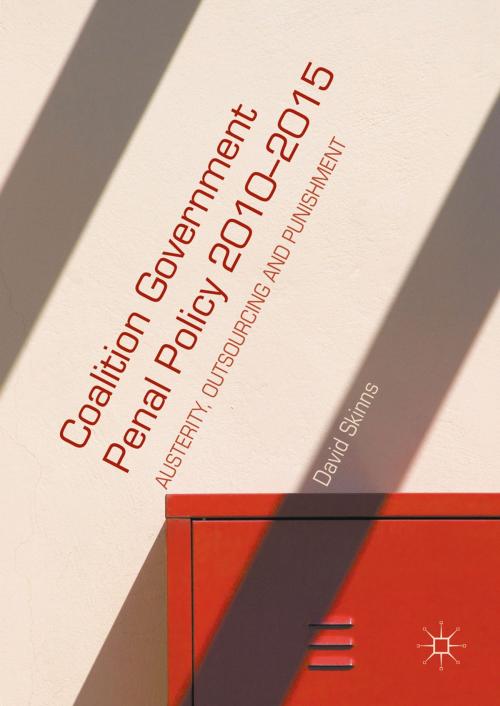Coalition Government Penal Policy 2010–2015
Austerity, Outsourcing and Punishment
Nonfiction, Social & Cultural Studies, Social Science, Crimes & Criminals, Penology, Criminology| Author: | David Skinns | ISBN: | 9781137457349 |
| Publisher: | Palgrave Macmillan UK | Publication: | July 12, 2016 |
| Imprint: | Palgrave Macmillan | Language: | English |
| Author: | David Skinns |
| ISBN: | 9781137457349 |
| Publisher: | Palgrave Macmillan UK |
| Publication: | July 12, 2016 |
| Imprint: | Palgrave Macmillan |
| Language: | English |
This book shows how the overall impact of the penal policy agenda of the Coalition Government 2010-2015 has not led to the intended 'rehabilitation revolution', but austerity, outsourcing and punishment, designated here as 'punitive managerialism'.
The policy of austerity has led to significant budget cuts in legal aid and court services which threaten justice. It has also led to staffing reductions and overcrowding in the prison system which threaten order and have undermined more positive work with prisoners. The outsourcing of prison and community-based offender services is based on untried method with uncertain results. The shift in orientation towards punishment is regrettable because it is essentially negative. The book notes that this move to punitive managerialism is located in the broader trend towards neo-liberalism. It concludes by attempting to articulate the parameters of an affordable and emotionally satisfying yet humane and rational penal policy.>
This book shows how the overall impact of the penal policy agenda of the Coalition Government 2010-2015 has not led to the intended 'rehabilitation revolution', but austerity, outsourcing and punishment, designated here as 'punitive managerialism'.
The policy of austerity has led to significant budget cuts in legal aid and court services which threaten justice. It has also led to staffing reductions and overcrowding in the prison system which threaten order and have undermined more positive work with prisoners. The outsourcing of prison and community-based offender services is based on untried method with uncertain results. The shift in orientation towards punishment is regrettable because it is essentially negative. The book notes that this move to punitive managerialism is located in the broader trend towards neo-liberalism. It concludes by attempting to articulate the parameters of an affordable and emotionally satisfying yet humane and rational penal policy.>















